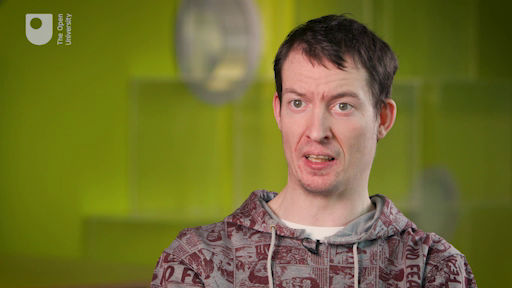Session 6: Health and wellbeing
Introduction
In this session you will consider the health and wellbeing of people with learning disabilities.

Transcript: Video 1
CIAN: Well, I have mental health problems, but they’re just seen as part of my disability. They're not taken seriously as mental health problems.
CHARLENE: I've got sent a letter saying that I need to pay them for my treatment because I didn't put the right benefits that I was getting.
TERRY: They thought that I was drunk because of my cerebral palsy.
SHAUN: I've had a very lucky time with NHS. The only people that I really don't like are 111 service just because they seem to think that when you have a headache, that you need an ambulance when it's not true-- especially when you're epileptic.
As you learned in Session 1, a learning disability is not, in itself, an illness. The definition is dictated by people’s need for support in managing their lives successfully. But people with a learning disability do face particular challenges when it comes to health and wellbeing.
Statistics show that people with learning disabilities die on average more than 20 years earlier than the population of the UK (University of Bristol, 2018). Rates of obesity are also higher than average (Heslop et al., 2013) as it can be difficult for people to understand messages about healthy eating and exercise, and why they matter. Many people also have additional health problems such as epilepsy or diabetes, cerebral palsy or swallowing difficulties.
Despite all this, people often struggle to get good quality healthcare, even in the NHS.
In this session you will explore:
- situations where making independent choices may conflict with a healthy diet and lifestyle
- changes that can enable people to receive improved healthcare
- ongoing weaknesses in delivering good healthcare and how failures have resulted in serious harm and preventable deaths
- how health risks can be reduced if well managed
- why people with learning disabilities can be vulnerable to loneliness.
